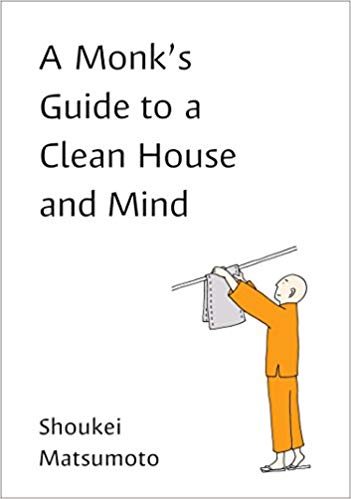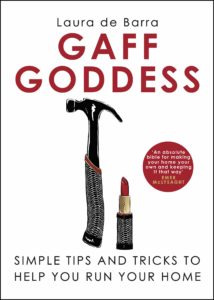Reading About Clean Queens and the Tidying Revolution
In the past few years, there have been a raft of books about cleaning, tidying, organising, and sustainability. From our bedrooms to our offices, we’ve become obsessed with the best uses of space and finding moments of mindful reflection wherever we can.
Perhaps most famous is Marie Kondo’s The Life Changing Magic of Tidying Up. The book that pushed Kondo into the stratosphere of popularity, this book gently demands that we begin to let go of things we no longer need, and teaches skills for tidying and organisation. Though I enjoyed the book and it taught me some key lessons about letting go of things, I can’t quite adopt the tidying and organisational tips; unfortunately, my socks remain boringly tucked together and tossed into a drawer without much care.
 What I valued most about Kondo’s work was her approach to caring for things, and taking immense care in the tidying tasks we undertake. Perhaps this is why I love A Monk’s Guide to a Clean House and Mind by Shoukei Matsumoto. From the sweeping descriptions of thoroughly cleaning wooden floors to the acceptance that so called ‘pointless’ tasks can have meaning if we let them. Using zen techniques, the book walks the reader through the process of changing small routines to make a home a refuge.
What I valued most about Kondo’s work was her approach to caring for things, and taking immense care in the tidying tasks we undertake. Perhaps this is why I love A Monk’s Guide to a Clean House and Mind by Shoukei Matsumoto. From the sweeping descriptions of thoroughly cleaning wooden floors to the acceptance that so called ‘pointless’ tasks can have meaning if we let them. Using zen techniques, the book walks the reader through the process of changing small routines to make a home a refuge.
I admit that I loathe cleaning, so Matsumoto’s approach was beneficial for me. The overall weight of household tasks is one I resent on a daily basis- and I generally assume everyone else feels the same. However, Mrs Hinch sees the world differently. Off the back of a well followed Instagram account, Hinch Yourself Happy became a bestseller when it was first published. The author noted that cleaning helped her to deal with her own anxiety and uses her book to pitch simple fixes, clever techniques and charming ideas about how to get your house in order, literally.
There is a part of me that rejects books about cleaning and tidying, both of which are examples of unpaid labour in the home. After all, in 2016 Britain, woman did almost 60% more of the unpaid work, on average, than men.
This is undeniably frustrating, and though I’m pleased to see so many kickass women making names for themselves on our bookshelves, I sometimes find myself questioning if these Instagram account and books add to the weight of the mental load, accelerating the expectation that women (the dominant market for these books) will always do the cleaning. But then I look at something like Laura de Barra’s Gaff Goddess and I shrug off my concerns, because these books contain decades of lessons that really do have the potential to make our lives easier, nicer and less stressful overall.
Gaff Goddess has emerged from de Barra’s years in the property sector, fixing renter issues, setting up rental homes and generally learning key tips and tricks to keeping a house tipping over. This isn’t about organising your socks – it’s about getting the tools out and developing the confidence to manage DIY tasks with confidence. To me, this is the future of books in this sector, which will teach people – hopefully not just women, but all people – how to do things they always felt were impossible for them. Gaff Goddess is spattered with beautiful illustrations and I can legitimately say I learned ten things in the first few pages alone.
So, Riot readers, which Instagram accounts do you follow for some DIY help? What books have you used that have helped you to sort your house out? Are you a Hincher or a KonMari fanatic? Tell us!

